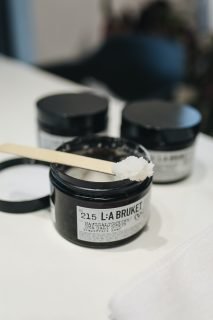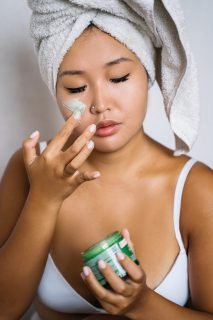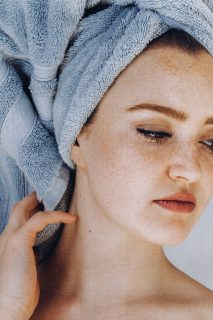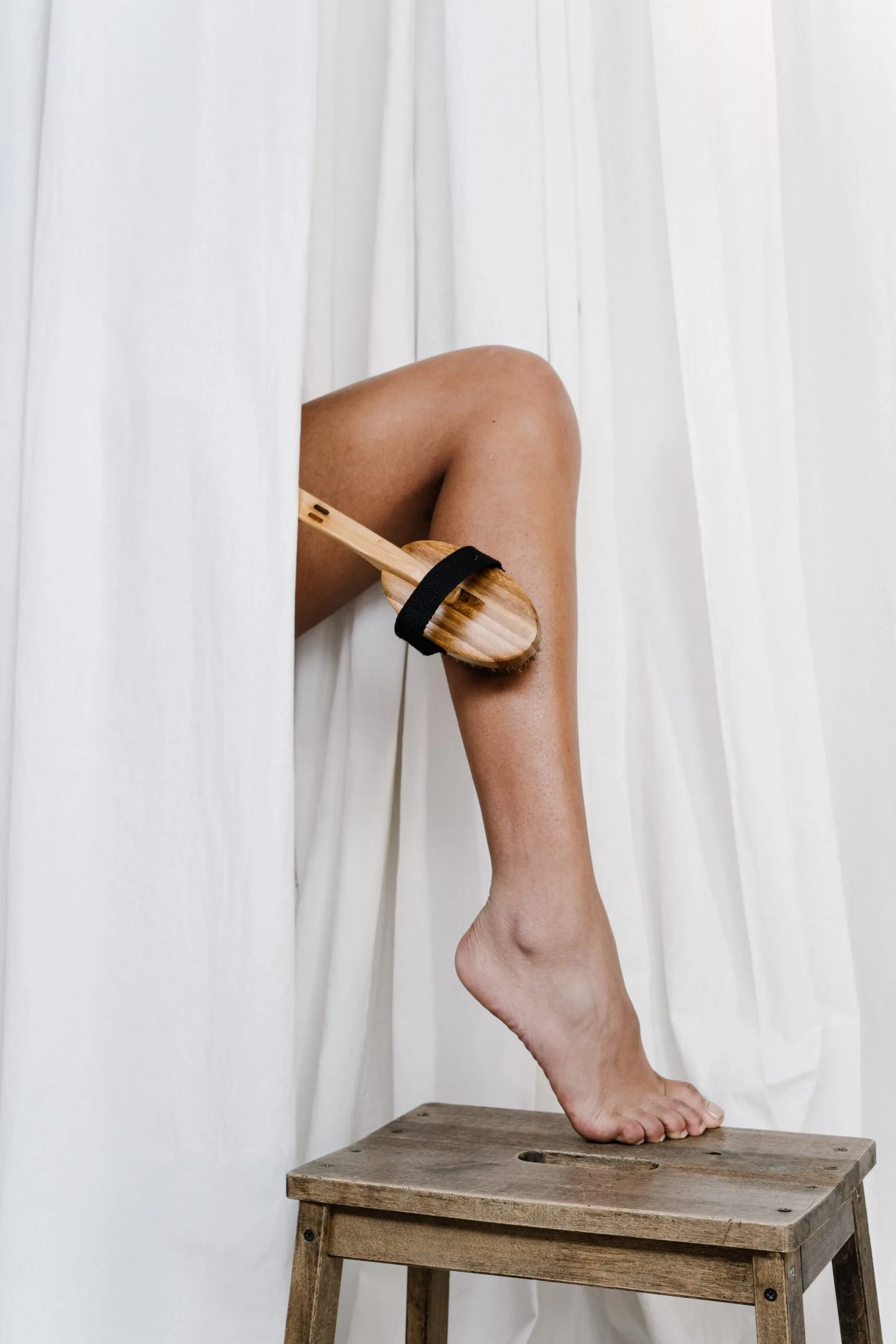There is honestly nothing better than exfoliating your body. It feels a little like you’re removing the old you. The removal of old, dead skin signals a new beginning. Whether you’re using an exfoliator that is rough-textured or a chemical exfoliator, it does the same job. Essentially, at its core, exfoliating is about removing dead skin cells from the surface of the skin. Over a period of about 30 days, the skin naturally sheds dead skin cells. However, sometimes these dead cells don’t shed completely. This can lead to dry, flaky patches of skin and congested pores.
Boosts circulation
Exfoliating your body can have internal as well as external benefits. When you exfoliate the skin, it stimulates lymphatic drainage which is a form of

Photo by Polina Tankilevitch from Pexels
internal cleansing. It aids in releasing toxins and waste buildup from the body. Massaging the skin’s surface also helps to stimulate the oxygen-rich blood below the skin’s surface. This can improve the skin’s texture and works to “feed and nourish the skin’s surface”.
Unclogs pores and prevents acne
Lily Talakoub, MD, of McLean Dermatology and Skincare Center explains that exfoliation actually unblocks pores. Exfoliation goes a bit deeper than your regular cleanser. This means that the surface debris which might otherwise accumulate in pores is removed. When this debris does manage to infiltrate the skin and clog the pores, it can cause whiteheads or blackheads. And once either appear on the skin, they are very difficult to get rid of. Exfoliating regularly prevents pores from becoming clogged, ultimately preventing the irritation of blackheads or whiteheads.
Exfoliation essentially removes dead skin. This dead skin which doesn’t completely shed is what causes problems. These dead skin cells block the pores. The real problem, however, occurs underneath. Celebrity esthetician and skin expert, Sonya Dakar explains that the sebaceous glands keep producing oil that is stuck underneath the dead skin. This is often what causes breakouts.
Aids in product penetration and absorption
It makes sense that once the pores are unblocked, the surface of the skin is smoother. This opening of the pores also allows topical products applied to the skin to absorb more easily and effectively. This can only be a good thing as the rich, nourishing ingredients can actually get into the skin and work to repair and protect. We all know that toners and serums are important but without exfoliation, these (often expensive) formulas can’t be absorbed into the skin. This means that they can’t do their job and effectively there is nothing gained by using them. If you do want to include an exfoliant into your daily

Photo by Anna Tarazevich from Pexels
skincare routine, make sure that it’s gentle enough for daily use.
Stimulates collagen
Collagen is the most prevalent protein in the body. It forms the building blocks of bones, skin, muscles, tendons, and ligaments. Increasing

Photo by Maria Orlova from Pexels
collagen synthesis in the skin is incredibly beneficial. Collagen makes the skin look “plump, tight, and young”. This essentially where the anti-aging aspect of exfoliation comes in. Many people swear by exfoliation to reduce the appearance of fine lines and wrinkles. It’s unlikely however that the exfoliation itself is what is causing this benefit. Rather, the process of exfoliating the skin stimulates collagen production and this is what causes the reduction in signs of aging.
How often should I exfoliate?
There aren’t any strict rules or guidelines when it comes to how often you should exfoliate. Experts do say that people with rosacea should only exfoliate once a week. Normal to oily skin can usually cope with some exfoliation daily. However, if you’re planning on exfoliating on a daily basis, your exfoliator needs to be more gentle. The skin on your face is also much more sensitive and delicate than the skin on the rest of your body. If you want to exfoliate both your face and body, you need two separate exfoliators. Ideally, you need to listen to your skin. Everyone is different and while some people might do well exfoliating every day, others might need to limit it to once or twice a week.
Let’s get exfoliating
There’s no doubt that this is a step we should all make sure to add to our skincare routine. It has a wide range of benefits which include everything from stimulating collagen production and dealing with an uneven skin tone to preventing blemishes. Ideally, start off with a more gentle exfoliant and use it a few times a week. You may want to slowly build up to using it every day as this will allow you to see how your skin copes without causing any damage.
References:
https://www.medicalnewstoday.com/articles/324518
https://www.eccotique.com/blogs/news/why-is-exfoliation-so-important-for-your-skin
https://www.healthline.com/health/beauty-skin-care/meaning-of-exfoliating#benefits
https://www.canyonranch.com/blog/beauty/the-health-and-beauty-benefits-of-a-body-scrub/
https://www.vishaskincare.com/blogs/news/how-often-should-you-exfoliate-your-body





![women [longevity live]](https://longevitylive.com/wp-content/uploads/2020/01/photo-of-women-walking-down-the-street-1116984-100x100.jpg)










